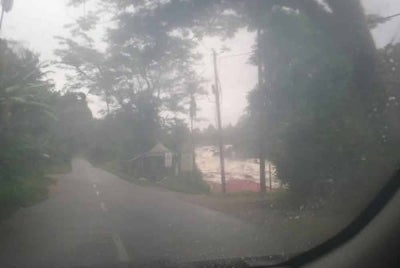Haj pilgrims told to be aware of heat stroke symptoms, seek immediate attention

MADINAH - The hot weather in Madinah has become a topic of discussion among Haj workers who are accustomed to the humid climate in Malaysia in contrast to the hot and dry temperature in the middle east.
On Friday, while traveling from the Roha hotel to the Nabawi Mosque to perform Friday prayers, the heat could be felt even inside an air-conditioned vehicle.
Upon arriving at the mosque, despite only having to walk a few metres, the scorching temperatures was at 40 degrees Celsius at 11:30am.
Fortunately, the mosque grounds are equipped with steam fans and huge umbrellas measuring 25 metres wide and 20 metres high, providing protection from the sun during prayers.
Public Health Physician Dr Asraf Ahmad Qamruddin said the rise in temperature could cause excessive loss of body water which could potentially result in heatstroke if individuals are directly exposed to the heat.

Dr Asraf has advised pilgrims to be mindful of the symptoms associated with heat stroke, including dry skin, dry tongue and lips, red marks on the skin, dizziness, muscle spasms, and fainting.
“Haj pilgrims should seek immediate treatment if they experience such symptoms at the health centre provided by Tabung Haji (TH).
“Heat stroke if not treated early could cause death,” he told Malaysian media here.
He added in such weather all pilgrims are at risk of a heat stroke, adding that individuals who are over 60 years old and those with pre-existing health conditions such as diabetes and kidney diseases are at a higher risk.
“The other method of preventing heat stroke is that we need to avoid being under the son for a long period of time," he said, further advising pilgrims to drink at least two litres of water, use an umbrella or apply sunscreen lotion to protect against sun's ray.
He further advised pilgrims to wear loose clothes to minimise heat retention.
Dr Asraf said the use of soap can potentially cause a person's skin to become dry, although its effect varies from person to person.
He encouraged pilgrims to wear face masks as they can help prevent dust infection and protect against the transmission of other diseases.
Download Sinar Daily application.Click Here!














